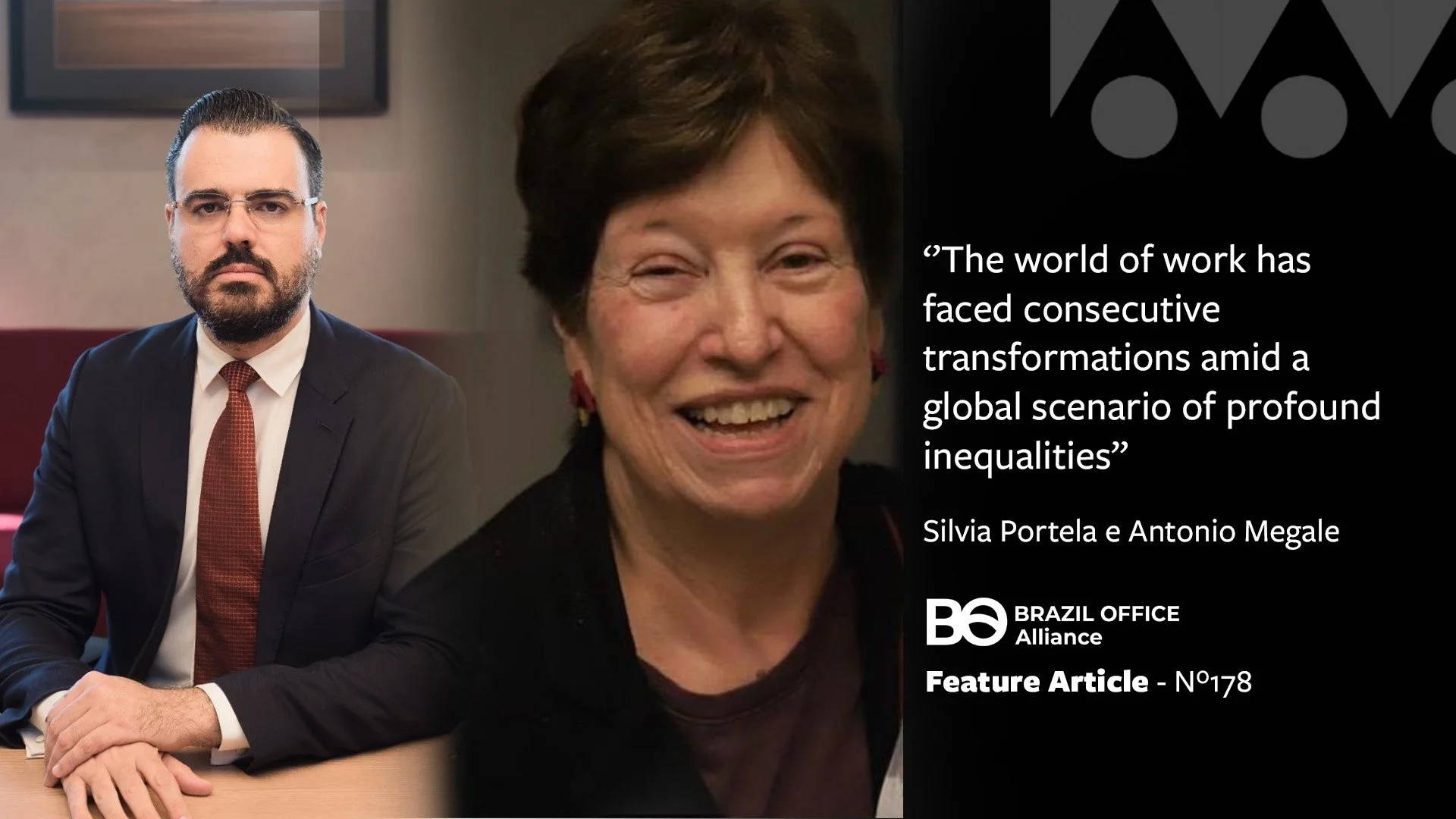Observatory of International Labor and Social Rights – ODTI
By Silvia Portela* and Antonio Megale**
Over the past five decades, the world of work has faced consecutive transformations amid a global scenario of profound inequalities and environmental destruction, the consequences of which primarily affect the poorest.
In the 1970s, the adoption of neoliberalism as a governing model by central countries significantly affected the regulation of employment relations in different parts of the world, beginning with England and later the rest of Europe. In Latin America, neoliberalism expanded through military regimes, pioneered by Chile and Argentina.
In Brazil, things were somewhat different. Given the strength of the industrial economic model, the state was strengthened, and industrialization and agribusiness expanded, generating a new working class that had the strength to create a vigorous labor movement and the Workers' Party (PT), which, after 20 years of existence, had enough power to contest national elections. This was even the basis for a democratic and social Constitution, which not only maintained the old corporatist union model but also expanded the strength of the union structure.
In the 1980s and 1990s, the neoliberal model expanded in Brazil, facilitating a wave of privatizations and the reduction of the state apparatus. This process coexisted with international economic crises, such as the foreign debt crisis, leading to periods of rising unemployment. Also during this period, the automation of work processes intensified, contributing to the greater precariousness of labor relations.
This situation worsened after the "Labor Reform" promoted by Congress in 2017, which broadly reshaped the Consolidated Labor Laws (CLT), weakening protection for workers and creating significant difficulties for collective bargaining and union representation.
At the same time, international normative instruments, such as the conventions of the International Labor Organization and the International Covenant on Economic, Social, and Cultural Rights, have been repeatedly disregarded or only partially incorporated into national legal frameworks.
In Brazil, issues such as work for digital platforms, domestic work—despite the ratification of ILO Convention No. 189—limits to the 6x1 workday, human rights, and companies continue to be examples of asymmetries between international standards and institutional practices.
To monitor this process and assist social movements, especially unions, the Labor Institute and the Aliança Brasil Office planned to create a space for information on progress, setbacks, and complaints related to Fundamental Labor Rights, called the Observatory on International Labor and Social Rights (ODTI).
ODTI aims to denounce any and all human rights violations and any form of social exploitation, in addition to contributing to the strengthening of proposals and initiatives that address issues such as poverty eradication, ensuring equal opportunities, and reducing inequalities, whether through appropriate laws, policies, and actions to promote the social, economic, and political inclusion of all, regardless of age, gender, disability, race, ethnicity, origin, religion, or economic status.
ODTI aims to disseminate and exchange laws and new forms of collective bargaining, as well as court decisions and legislation that contribute to the development of labor law in Brazil and internationally.
Its main instrument will be the systematic dissemination, on its website, of information, news, and documents collected from national and international sources.
ODTI also intends to hold seminars and meetings with unions and academic organizations, seeking to expand knowledge of advances and setbacks achieved in Brazil and internationally, with a primary focus on the Americas and Europe, in addition to influencing international mechanisms on the topic.
The Observatory is developed and updated by the Lavoro Institute and, as with other existing agreements within the Aliança Brasil Office, is available to all entities and organizations interested in the topics and may disseminate complaints, reports, and announcements from member entities related to the topics covered.
*Silvia Portela is a sociologist, union advisor, vice president of the Board of Directors of the São Paulo School of Sociology and Politics Foundation, and a member of the Lavoro Institute.
**Antonio Megale is a labor and union lawyer, union advisor, and member of the Lavoro Institute.


